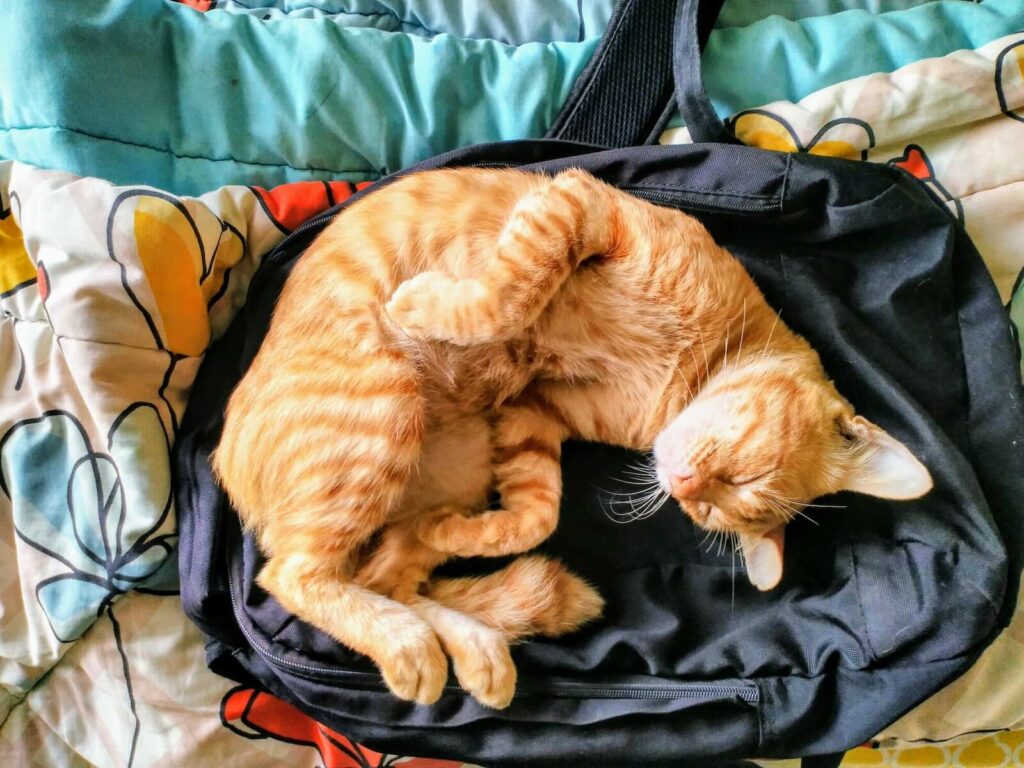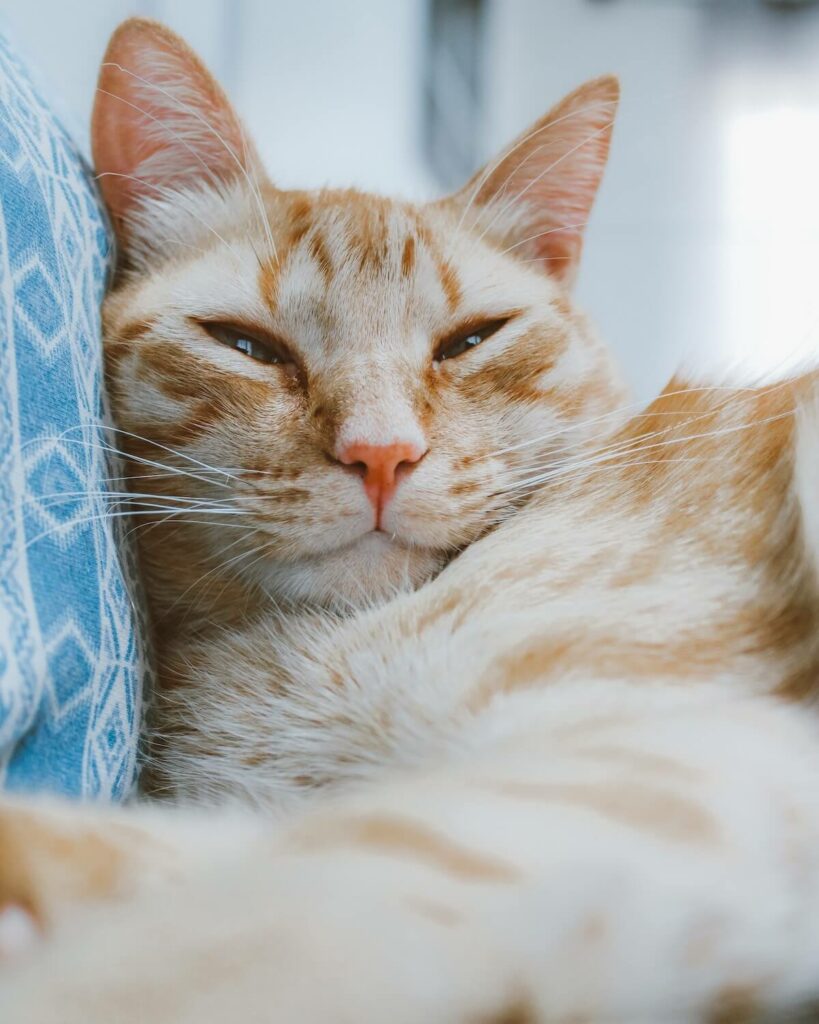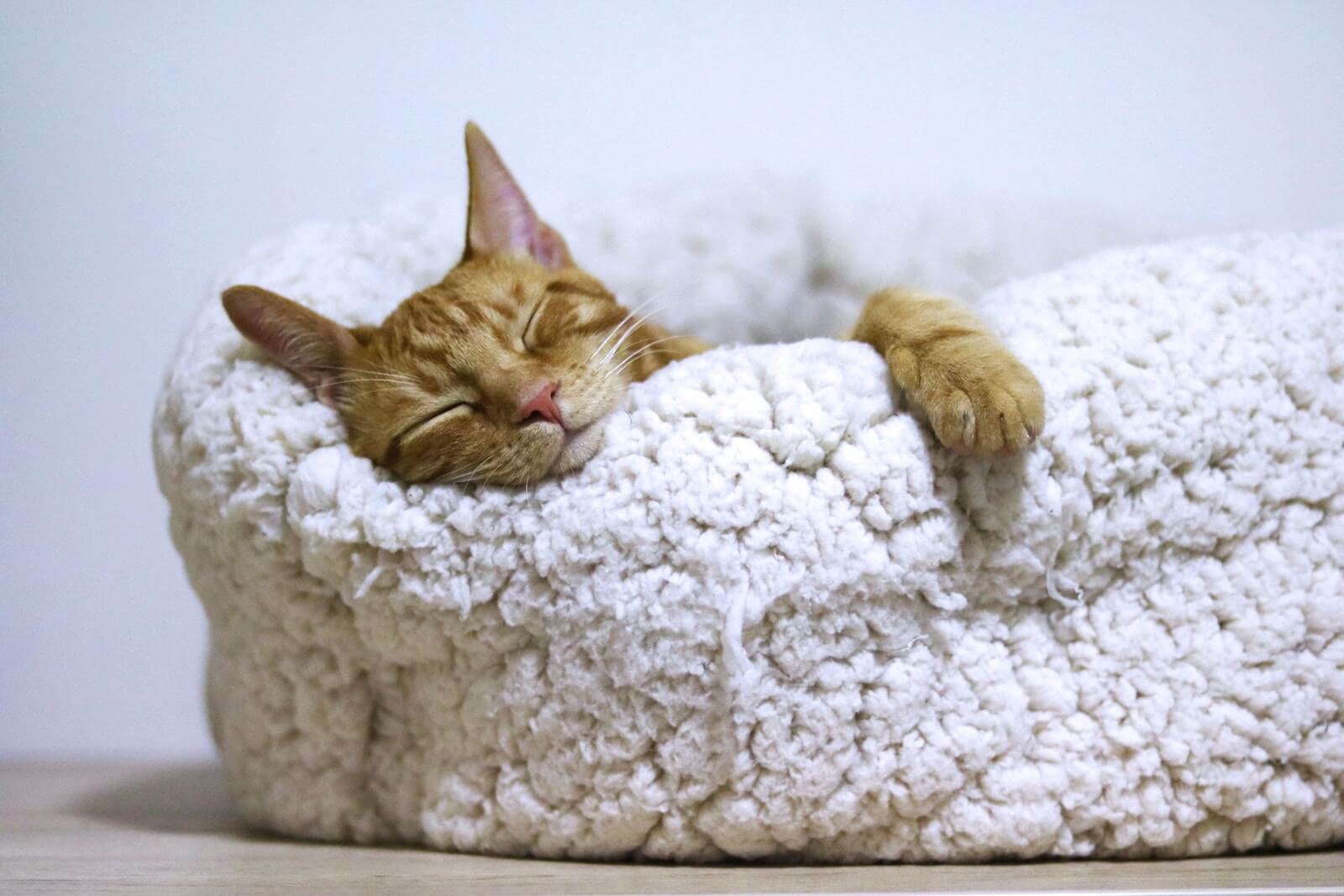Cats love to sleep. They love sleeping so much that it seems contradictory because, on the one hand, they are very active when awake, running and jumping from one place to another. On the other hand, they seem very lazy because they sleep approximately 14 hours daily, let alone in winter. And what about hibernation? Do cats hibernate like bears?
A cat can sleep up to twenty hours in winter or cloudy days! Yes, just as you read it, although it is necessary to explain it, it is not that it sleeps twenty hours in a row, but in total, adding up all the naps it takes, a cat can sleep almost a whole day. These cases, primarily in winter, make many parents wonder if their cat is hibernating or at least trying to. If you are one of those concerned cat parents worried about the sudden change in your cat’s sleeping pattern, you have come to the right place to clear all your doubts.
Understanding hibernation
Hibernation is when a mammal goes into minimal activity and metabolic depression, characterized by a long sleep lasting for months. Generally, animals that hibernate, such as bears, squirrels, and some reptiles, do so during the winter, and the reason is purely for survival. Living in the wild, day-to-day life is complicated if the temperature is shallow if it rains or snows, and if food is scarce, many mammals and reptiles have developed hibernation to survive these seasons.

During hibernal cycles, the animal’s body undergoes truly extraordinary changes. The animal goes to sleep for months, but not only that, its heart rate and breathing become very slow to maximize energy use. While sleeping, the body maintains itself from the caloric reserves, or fat, accumulated during spring and summer and also uses its own stored urine to stay hydrated. The body lowers its temperature slightly, thus slowing metabolism, and can withstand up to 7 months in this state without damage.
The greatest example is that of bears, which spend more than half a year hibernating without eating, drinking, defecating, or urinating and then waking up as if nothing had happened.
Do cats hibernate?
After reading the above, you will probably say, “My cat does not hibernate,” You are right. As of today, there is no proof that a cat can stay in hibernation for months and wake up fresher than ever.
Your cat may be a first-rate slob, but he doesn’t hibernate. Although let me tell you that his body does change during the cold months, which we humans can also experience. When the sky is gray, and the sun has not been out for days, it is common for the cat’s body to suffer from the lack of sunlight to which it is so accustomed. When this happens, a seasonal depression called Seasonal Affective Disorder can occur, which is nothing more than lethargy and lack of interest that can alter the cat’s sleeping and eating habits.
That’s why during the winter, a cat can sleep much more than expected, up to twenty hours, reduce its food intake and seem apathetic to games or walks because it is depressed, but don’t worry. This is only temporary. A little sunshine and a warm environment are enough to cheer up your cat again.
What is torpor?
Another term closely related to hibernation refers to that long, deep sleep into which an animal may enter, but there is a big difference. While hibernation lasts for months, torpor refers to that process of decreased physiological activity that an animal enters into to cope with food shortages or inclement weather, such as extreme cold, but it has a maximum duration of 24 hours.
Let’s think about stray animals, for example, a feral cat that has already spent several days without receiving decent food and water during the cold winter. To survive, its organism allows it to enter a state of lethargy, in which its heart and respiratory rate decreases and its body temperature drops, ensuring its body can withstand these otherwise life-threatening long periods.

It is improbable for a domestic cat to go into torpor since indoor cats will never lack food or undergo extreme temperature changes. Your cat is simply sleepy and may have a slight seasonal depression.
Do cats hibernate? The bottom line
Hibernation is a state that an organism can enter to withstand the long winter periods when the temperature drops sharply, thus reducing the amount of food available. When this occurs, the animal can sleep for up to six or seven months, surviving on the fat and fluids stored in its body, and it does so without suffering any damage or muscle atrophy. Incredible as it may seem, the bodies of domestic cats cannot do this, and a cat would hardly need to do so.
If you notice that your cat sleeps more than usual during the winter, it’s because the lack of light makes him a little depressed. If this happens, you can help your cat by taking him for a walk to get some sunshine and keeping your home warm and cozy for your furry friend.
